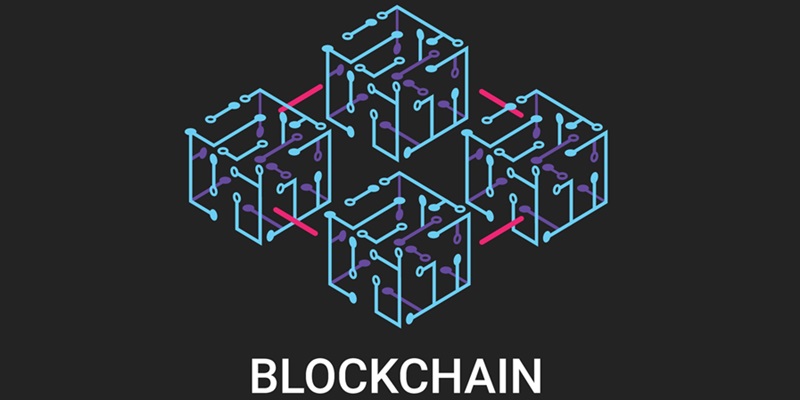In today’s rapidly evolving digital landscape, blockchain technology has emerged as a revolutionary force. Its potential to disrupt traditional industries and transform various sectors is undeniable. Blockchain has become central to ushering in the next era of technological advancement, opening up infinite possibilities for innovation and creating a more connected and secure world.
Maximizing profits and enabling global digitization through blockchain
A key advantage of blockchain lies in its ability to maximize profits while facilitating full global digitization and digitalization. By utilizing blockchain, businesses can streamline their operations, reduce costs, and enhance efficiency. This decentralized technology eliminates intermediaries, thereby reducing transactional friction and improving profitability. Moreover, blockchain’s transparent and tamper-resistant nature ensures trust and security in global transactions, making it invaluable for cross-border e-commerce, finance, and supply chain management.
Building a global healthcare database on the blockchain to eliminate data silos
One of the groundbreaking applications of blockchain is the creation of a global healthcare database that eliminates data silos. Currently, patient information is scattered across multiple healthcare providers, leading to inefficiencies and gaps in patient care. By leveraging blockchain technology, a comprehensive and immutable health database can be established, allowing for seamless access to patient records while maintaining privacy and security. This would enable healthcare professionals to make better-informed decisions, advance medical research, and ultimately save lives.
The COVID-19 pandemic is a prime example of blockchain’s potential
The ongoing COVID-19 pandemic has further highlighted the potential of blockchain technology. The need for rapid and transparent exchange of medical information, contact tracing, and vaccine distribution has revealed the limitations and vulnerabilities of existing systems. By harnessing the power of blockchain, governments and healthcare organizations can create a decentralized infrastructure that ensures efficient data management, secure supply chain tracking, and real-time sharing of vital information. This strengthens our collective response to future crises.
Recognition of the value in building digital platforms on the blockchain by global businesses and governments
In recent years, global businesses and governments have recognized the inherent value of building digital platforms on blockchain. The traceability, immutability, and transparency offered by this transformative technology enhance trust, eliminate fraud, and enable streamlined processes. As a result, numerous sectors including finance, logistics, energy, and agriculture are exploring blockchain solutions to drive innovation, enhance operational efficiency, and create new business models. This widespread adoption is propelling blockchain into the mainstream.
Projected growth of the blockchain market is expected to reach $67.4 billion in three years
The immense potential of blockchain has led to its astounding growth. Market research indicates that the blockchain market is poised to reach a staggering $67.4 billion within the next three years. The increased investments and growing demand for blockchain-based solutions indicate a bright future for this technology. The market expansion will be driven by its versatility, scalability, and the increasing number of use cases across industries.
Highlighting the BSV blockchain as the largest public blockchain available
BSV Blockchain has established itself as the largest public blockchain in the market. With its massive scalability, high transaction throughput, and low fees, BSV Blockchain stands out as a trusted platform for businesses and developers alike. Its ability to handle vast amounts of data while maintaining transactional efficiency makes it an ideal choice for applications requiring large-scale data management.
Utilization of Corda by major firms like Accenture and NASDAQ
Corda, a blockchain platform developed by R3, has gained significant traction in the industry. Prominent firms such as Accenture and NASDAQ have adopted Corda for their blockchain initiatives. This platform offers robust security, privacy, and interoperability, making it particularly well-suited for complex financial transactions and regulatory compliance requirements. The utilization of Corda by these industry leaders underscores its reliability and suitability for enterprise-level applications.
Acknowledging the popularity and vast ecosystem of the Ethereum blockchain
The Ethereum Blockchain is worth mentioning due to its popularity and vast ecosystem. As the pioneer of smart contract technology, Ethereum has enabled the development of decentralized applications (dApps) and decentralized finance (DeFi) platforms. Its thriving community of developers and broad range of use cases have further cemented its position as one of the most influential blockchains. Ethereum’s scalability challenges are being addressed through innovative solutions such as Ethereum 2.0, which promises enhanced performance and expanded capabilities.
Considerations for selecting a blockchain for platform and application development, emphasizing its relevance to the target industry
When selecting a blockchain to build platforms and applications, it is crucial to consider the specific needs and requirements of the target industry. Each blockchain platform offers distinct features, scalability, security, and compatibility with existing systems. Factors such as transaction speed, governance model, consensus mechanism, and development tools need to be evaluated. Moreover, considering the level of community support, regulatory compliance, and future scalability potential are also vital aspects to consider for long-term success.
In conclusion, blockchain technology has emerged as a game-changer, promising a multitude of benefits across industries. Its potential to maximize profits, facilitate global digitization, eliminate data silos, and improve healthcare systems has already been witnessed in various applications. The recognition of blockchain’s value by global businesses and governments, coupled with the projected market growth, indicates an exciting future for this transformative technology. As the industry evolves, selecting the right blockchain platform tailored to the industry’s needs will be essential for unlocking its full potential and reshaping the technological landscape.

